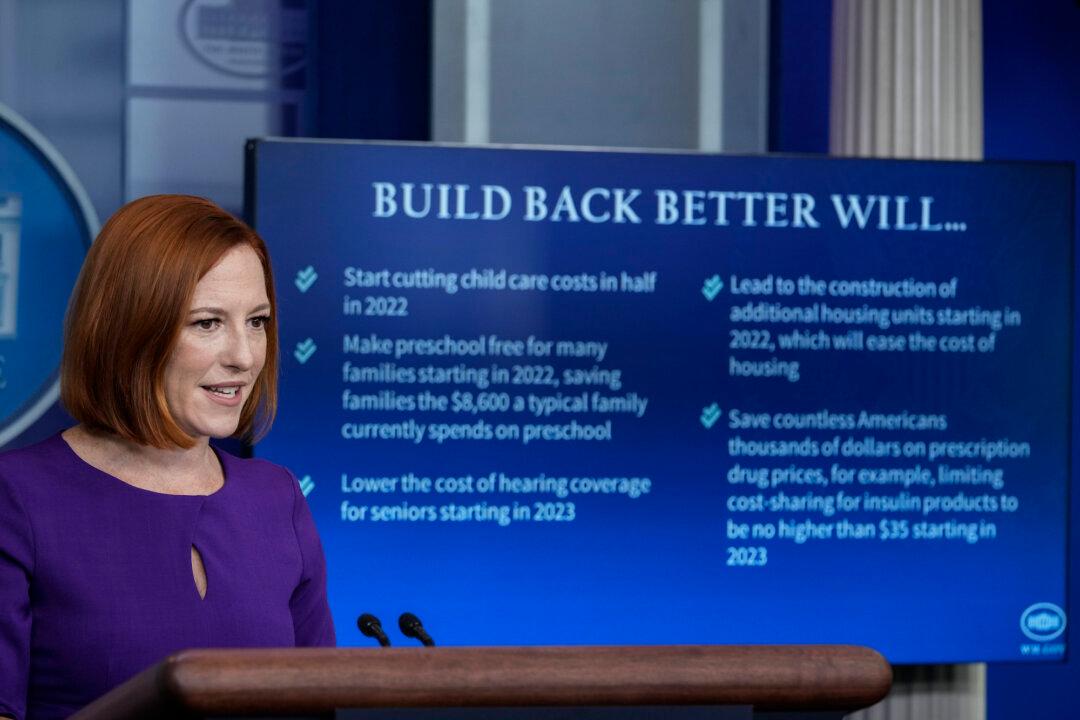White House Press Secretary Jen Psaki told reporters at a Nov. 12 briefing that rising gasoline prices—which are up around 60 percent from a year ago—are a strong argument in favor of more government spending on green energy solutions, while dismissing suggestions that the Biden administration’s policies like halting new oil and gas drilling leases were causing pain at the pump.
“The rise in gas prices over the long term makes it an even stronger case for doubling down our investment and our focus on clean energy options so that we are not relying on the fluctuations and OPEC and their willingness to put more supply and meet the demands in the market,” Psaki said at the briefing.





